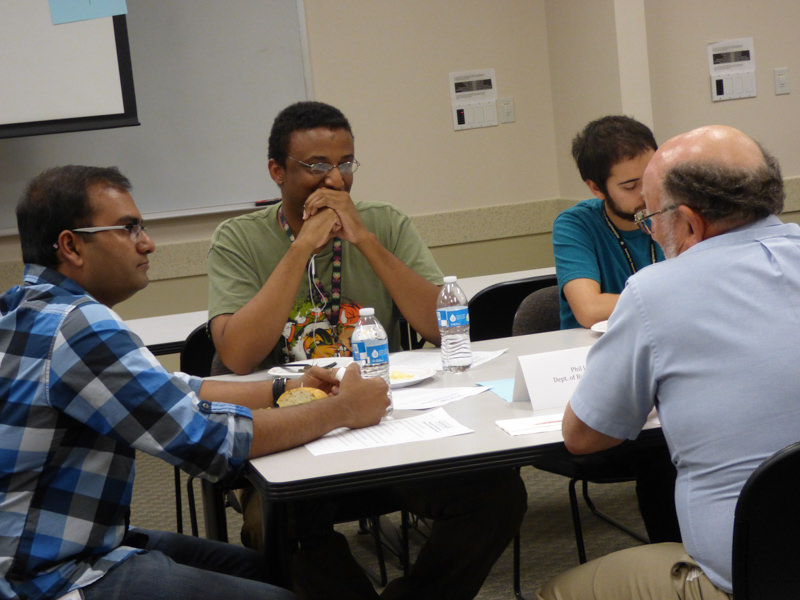Jobs in Academia: Tips For Future Academic Scientists

“I am still exploring the possibilities that are out there for my future career,” explained Rafael Veraza, a graduate student in the Translational Science Ph.D. program. “Ideally as a translational scientist, I think I would like to be basically be a bridge between the academic research scientists and industry.
Veraza attended the Career Advisory Council workshop on June 5 to learn more about tips for careers as an academic scientist.
During the workshop, Dr. Veronica Galvan, Dr. Charlie Wilson, Dr. James Lechleiter, Dr. William P. Clarke, and Dr. Phil LoVerde shared their personal path along with career advice.
“Science is like a competitive sport and it can be a very challenging career,” Dr. Lechleiter said.
“Networking might get you in the door but it won’t get you the position, it just gives you a shot at it.”

Dr. Lechleiter said that when he looks at applicants, he is always looking for someone who is complimentary and can add something to the team. He explained that having varied research interests can help
“A healthy and competitive scientific environment is when you are able to not only look at your own research but also to look at other people’s research and offer useful feedback,” Dr. Lechleiter said.
A solid portfolio is also key to getting an interview.
“At any stage, people will always look at what you’ve accomplished in your last job,” Dr. Lechleiter said. “It doesn’t have to be eight or nine publications but a few examples of good quality research.”

Dr. LoVerde explained that even if you don’t have a publication yet, the ability to come to the interview with materials that you are working on can help.
“They’ve already looked at your CV and found that you are worth interviewing,” Dr. LoVerde said. “Going to the interview with your ideas in hand and explaining what you still
need to do, how you can do it at this institution, who you will collaborate with, and why it’s important is impressive.”
In addition, Dr. LoVerde said that it is helpful to research the institution before the interview.
“Know what your teaching responsibility would be because private schools have different structures than public or undergraduate universities,” Dr. LoVerde said.
After being offered the job, Dr. LoVerde explained that if they give you the choice to teach first or second semester, it is always preferable to choose first semester.

“Use the first semester to get yourself set up in the lab, order your equipment and supplies, and apply for grants. Teaching a course for the first time can be extremely challenging especially if you are just getting used to being in a new environment. The second semester is when all your equipment has arrived and you will have the uninterrupted time to work in the lab.
Veraza explained that this was the first time he attended a Career Advisory Council meeting and that he found it extremely helpful.
“I think it is very important for students to engage with professors and professionals that have gone through the same steps that we are going through in our academic careers,” Veraza said. “I really like that we were able to talk to different professors and hear their pathway to where they are now. Having different perspectives allowed me to clearly understand the pathway into an academic career.”
